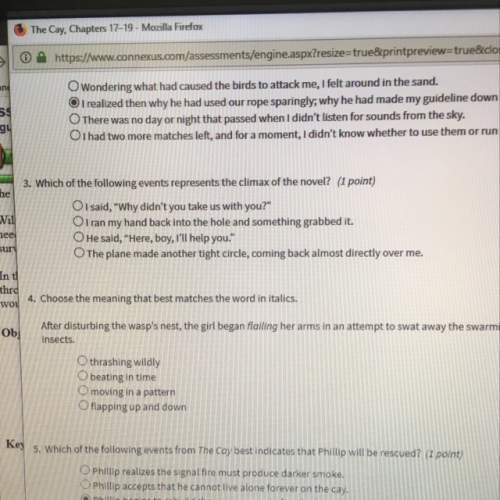S
p ace WICHTUUN speaking viastery test
Submit
Select the correct answer.
Re...

S
p ace WICHTUUN speaking viastery test
Submit
Select the correct answer.
Read the excerpt from President John F. Kennedy's inaugural address. Which statement best describes the main message of the passage?
In your hands, my fellow citizens, more than in mine, will rest the final success or failure of our course. Since this country was founded, each
generation of Americans has been summoned to give testimony to its national loyalty. The graves of young Americans who answered the
call to service surround the globe.
Now the trumpet summons us again-not as a call to bear arms, though arms we need-not as a call to battle, though embattled we
are-but a call to bear the burden of a long twilight struggle, year in and year out, "rejoicing in hope, patient in tribulation"-a struggle
against the common enemies of man: tyranny, poverty, disease and war itself.
And so, my fellow Americans: ask not what your country can do for you-ask what you can do for your country.
My fellow citizens of the world: ask not what America will do for you, but what together we can do for the freedom of man.
A. War is the only way to solve the problems of the world.
B.
People should work together to better their society.
OC.
Americans are incredibly loyal to their country.
D.
The US government should help those in need.

Answers: 3


Another question on English


English, 21.06.2019 23:10
Awell-written summary should be used o in place of reading an original text to you review something that you have already read
Answers: 2

English, 22.06.2019 00:00
Read this inference: "one day the neighbors will move out of the little frame house." what detail from the story best supports this inference?
Answers: 2

English, 22.06.2019 04:50
Read the passage, then answer the question that follows. no one could have seen it at the time, but the invention of beet sugar was not just a challenge to cane. it was a hint—just a glimpse, like a twist that comes about two thirds of the way through a movie—that the end of the age of sugar was in sight. for beet sugar showed that in order to create that perfect sweetness you did not need slaves, you did not need plantations, in fact you did not even need cane. beet sugar was a foreshadowing of what we have today: the age of science, in which sweetness is a product of chemistry, not whips. in 1854 only 11 percent of world sugar production came from beets. by 1899 the percentage had risen to about 65 percent. and beet sugar was just the first challenge to cane. by 1879 chemists discovered saccharine—a laboratory-created substance that is several hundred times sweeter than natural sugar. today the sweeteners used in the foods you eat may come from corn (high-fructose corn syrup), from fruit (fructose), or directly from the lab (for example, aspartame, invented in 1965, or sucralose—splenda—created in 1976). brazil is the land that imported more africans than any other to work on sugar plantations, and in brazil the soil is still perfect for sugar. cane grows in brazil today, but not always for sugar. instead, cane is often used to create ethanol, much as corn farmers in america now convert their harvest into fuel. –sugar changed the world, marc aronson and marina budhos how does this passage support the claim that sugar was tied to the struggle for freedom? it shows that the invention of beet sugar created competition for cane sugar. it shows that technology had a role in changing how we sweeten our foods. it shows that the beet sugar trade provided jobs for formerly enslaved workers. it shows that sweeteners did not need to be the product of sugar plantations and slavery.
Answers: 1
You know the right answer?
Questions


English, 29.01.2020 06:52



Social Studies, 29.01.2020 06:52

History, 29.01.2020 06:52

Biology, 29.01.2020 06:52



English, 29.01.2020 06:52


Social Studies, 29.01.2020 06:52

Computers and Technology, 29.01.2020 06:52

Mathematics, 29.01.2020 06:52



Mathematics, 29.01.2020 06:52

English, 29.01.2020 06:52


Mathematics, 29.01.2020 06:52




